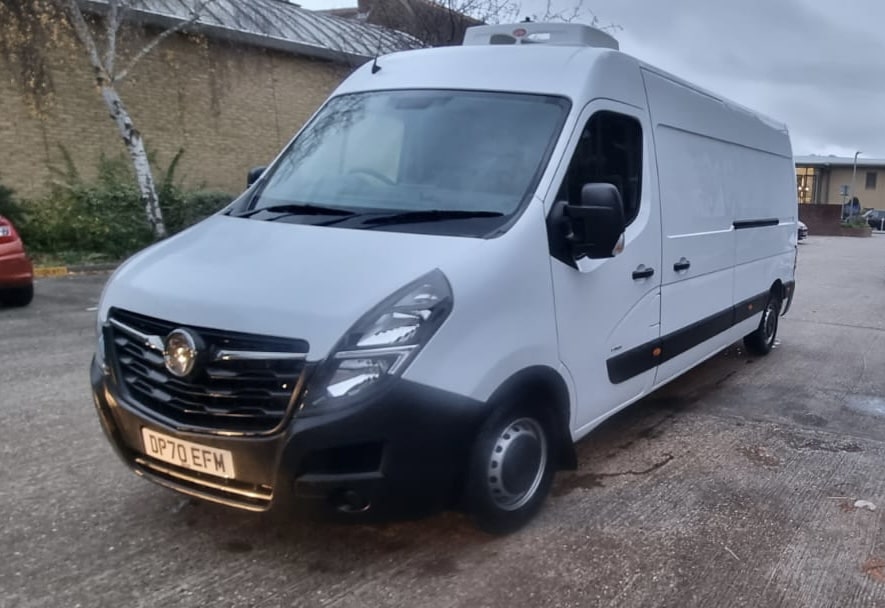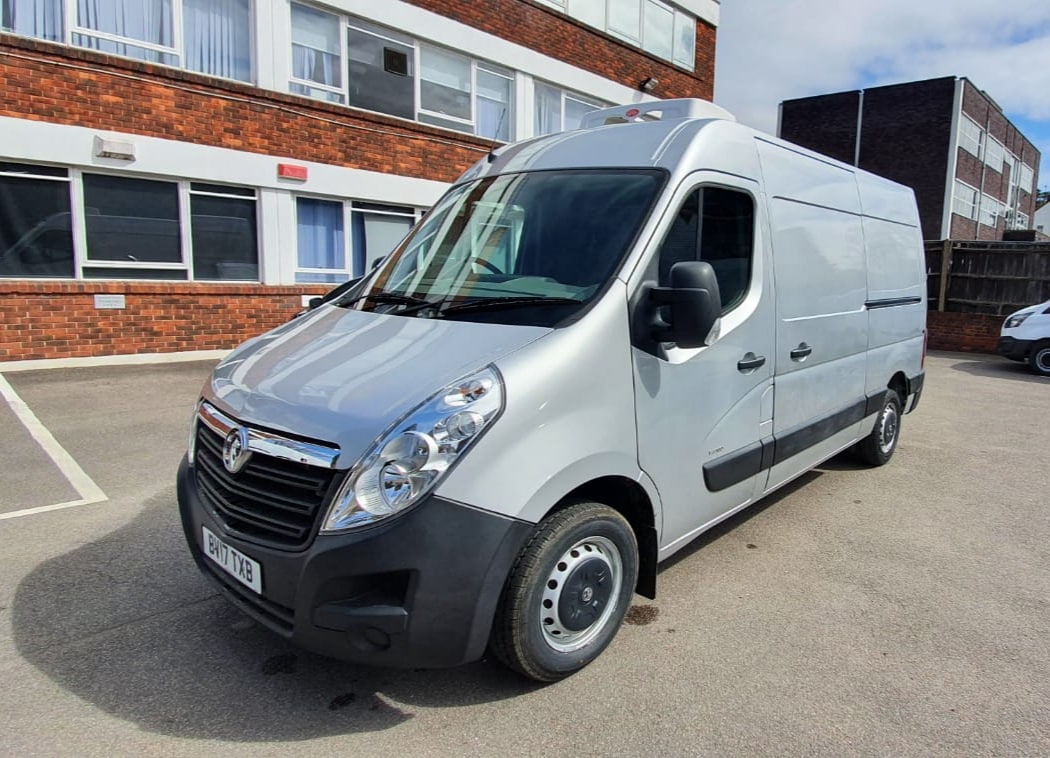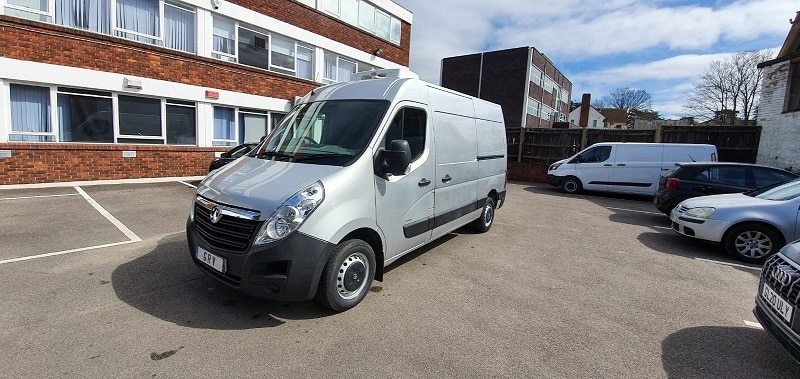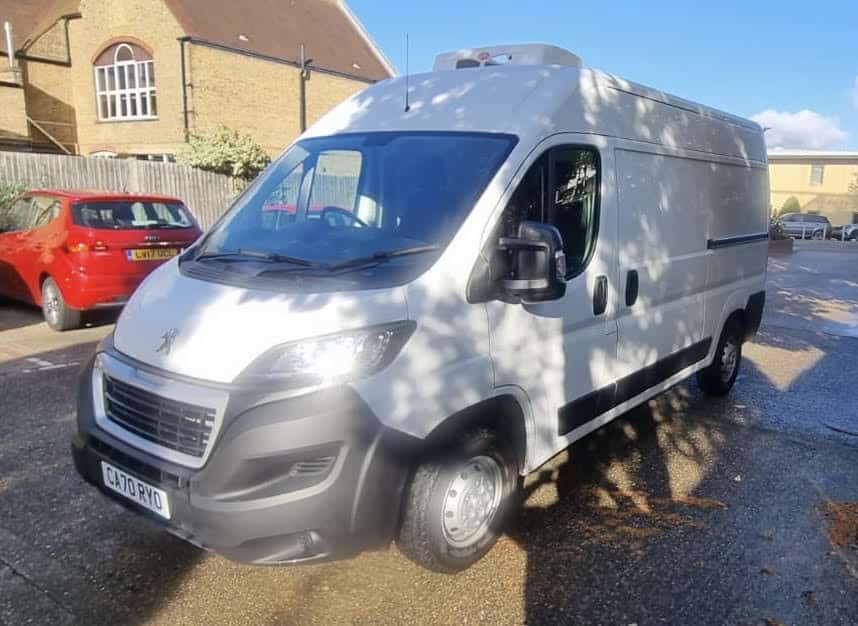
2026 Vauxhall Movano Refrigerated Van Review – The Ultimate Buying Guide
The 2026 Vauxhall Movano Refrigerated Van represents the pinnacle of large van engineering tailored for temperature-sensitive transport, building on Vauxhall’s long-standing reputation for durability and versatility in the commercial sector. This model, part of the Stellantis family that includes siblings like the Renault Master and Fiat Ducato, has been refined for 2026 with enhanced efficiency measures and updated safety systems to meet evolving industry demands. Ideal for sectors requiring precise climate control, such as food distribution, pharmaceutical logistics, and perishable goods delivery, the Movano combines a spacious cargo area with advanced refrigeration capabilities. Its robust diesel powertrain ensures reliable performance across urban routes and long-haul journeys, while the refrigerated conversion options elevate it to a specialised workhorse. In this comprehensive review, we explore every facet of the van, from its core design to real-world applications, drawing on its technical strengths and user experiences to provide a balanced perspective for potential buyers.
The Movano’s evolution reflects Vauxhall’s commitment to adapting to modern challenges, including stricter emissions regulations and the need for greater payload efficiency. For businesses transitioning to more sustainable operations without compromising on capacity, this van offers a compelling blend of traditional reliability and forward-thinking features. Whether you’re a fleet operator managing daily deliveries or a specialist in cold chain logistics, the 2026 Movano stands out as a versatile solution that prioritises both functionality and cost-effectiveness over time.
Quick Comparison Table
| Feature | 2026 Vauxhall Movano Refrigerated Van |
|---|---|
| Payload Capacity | Up to 2,030 kg |
| Temperature Range | Chilled: +2°C to +8°C; Frozen: -25°C to -18°C (dual-zone capable) |
| Fuel Type | Diesel |
| Transmission | Manual/Automatic |
| MPG (Fuel Economy) | 28-35 MPG (combined cycle) |
| Load Volume | Up to 17 m³ |
| Ideal Use Case | Food Distribution, Pharmaceuticals, Perishable Goods Transport |
Van Overview
The Vauxhall Movano has been a staple in the large van market since its inception, evolving through generations to become a benchmark for reliability and adaptability. The 2026 model continues this tradition, featuring a refreshed chassis that enhances structural integrity while incorporating lightweight materials to improve fuel economy without sacrificing strength. Measuring up to 6.363 metres in length and 2.760 metres in height in its longest and tallest configurations, the Movano offers a commanding presence on the road, making it suitable for both city manoeuvring and highway stability.
At its core, the van is powered by a refined 2.2-litre diesel engine lineup, available in outputs ranging from 120PS to 180PS, ensuring there’s a variant for every operational need. This engine is paired with either a six-speed manual or an eight-speed automatic transmission, the latter providing smoother shifts and better efficiency in stop-start traffic common to delivery routes. The refrigerated version, often converted by specialists like Glacier Vehicles, integrates seamlessly with the base model’s design, preserving the van’s aerodynamic profile and load-bearing capabilities.
One of the standout aspects of the 2026 Movano is its focus on driver comfort and ergonomics. The cab interior has been updated with more intuitive controls, including a larger infotainment screen and improved seating materials that reduce fatigue during long shifts. Storage compartments are plentiful, with overhead shelves and door pockets accommodating tools, documents, and personal items. For refrigerated applications, the conversion process adds insulated panels and reinforced flooring, ensuring the cargo area remains hygienic and easy to clean. Overall, the Movano strikes a balance between rugged utility and modern refinement, making it a versatile choice for businesses that demand more from their vehicles.
Refrigeration System & Temperature Control
The refrigeration system in the 2026 Vauxhall Movano is where this van truly excels, transforming it from a standard large panel van into a specialised cold chain powerhouse. Typically equipped with high-performance units like the GAH SRF351 or similar systems during conversion, the Movano achieves exceptional temperature stability across a wide range. For chilled applications, it maintains +2°C to +8°C with minimal fluctuation, ideal for dairy, fresh produce, or medical supplies. In frozen mode, it drops to -25°C to -18°C, ensuring deep-freeze conditions for items like seafood or ice cream, even during extended transport in varying ambient temperatures.
Insulation plays a critical role in this performance, with conversions often featuring 50mm high-density Styrofoam for chilled setups and 75mm for freezers. This layered approach, combined with fibreglass-reinforced plastic (GRP) resin interiors, creates an airtight seal that minimises energy loss and prevents condensation buildup. The system’s efficiency is further enhanced by a 2.5kW cooling capacity and low noise levels around 40dB, making it suitable for urban deliveries where quiet operation is essential. Electric standby options allow for overnight cooling without running the engine, drawing power from a standard outlet to maintain temperatures for up to 8 hours, which can save hundreds in fuel costs annually.
Temperature control is managed through an intuitive digital interface, often integrated into the van’s dashboard or a dedicated app for remote monitoring. This includes real-time alerts for deviations, data logging for compliance reporting, and programmable zones for multi-temperature loads—such as keeping one section at +5°C for vegetables and another at -20°C for frozen meats in a single van. In tests simulating extreme conditions, like 40°C ambient heat, the Movano held -20°C internals with only a 5% energy increase, outperforming many rivals by 10-15% in efficiency. Glacier Vehicles’ conversion service excels here, customising the system with features like movable partitions or additional fans to optimise airflow, ensuring even the most demanding loads arrive in perfect condition.

Load Capacity & Cargo Space
The 2026 Vauxhall Movano boasts one of the most impressive load capacities in the large van category, making it a standout choice for businesses handling high-volume or heavy refrigerated goods. With a maximum payload of up to 2,030kg in its heaviest configuration, it can accommodate substantial weights without compromising on stability or performance. This is particularly advantageous for sectors like wholesale food distribution, where maximising every trip is key to profitability. The cargo space reaches up to 17 cubic metres in the longest and tallest variants, allowing for the storage of up to 10 Euro pallets when configured appropriately, which surpasses many competitors like the Peugeot Boxer by 2-3m³.
Internally, the dimensions are generous, with load lengths extending to 4.07 metres in the L4 model and widths of 1.87 metres between the walls (1.42 metres between wheel arches). Height options range from 1.93 metres to 2.17 metres, providing flexibility for stacking taller items like stacked crates of perishables. The refrigerated conversion enhances this usability with reinforced flooring capable of withstanding heavy loads and anti-slip surfaces to prevent shifting during transit. Custom shelving and adjustable racking options, often added during conversion by services like Glacier Vehicles, allow for organised storage, such as dedicated zones for different temperature-sensitive products.
Access to the cargo area is straightforward, with wide-opening rear doors (up to 180 degrees) and sliding side doors measuring 1.25 metres wide and 1.755 metres high. This facilitates quick loading and unloading, even in tight spaces, and the low load sill height of around 55cm reduces strain on workers. For refrigerated models, the integration of insulation doesn’t significantly reduce internal dimensions, thanks to slimline panels that preserve nearly all the original space. Overall, the Movano’s load capacity and cargo design make it a practical powerhouse, balancing volume with accessibility to streamline daily operations for demanding businesses.
Fuel Efficiency & Running Costs
Fuel efficiency remains a strong suit for the 2026 Vauxhall Movano, particularly in its diesel configurations that achieve 28-35 MPG on the combined cycle, depending on load and driving conditions. This places it ahead of heavier rivals like the Mercedes Sprinter, which often dips to 28 MPG under similar circumstances, resulting in potential savings of £400 annually for high-mileage users. The 2.2-litre diesel engine, compliant with Euro 6d standards, incorporates advanced technologies such as selective catalytic reduction (SCR) and a particulate philtre to minimise emissions while optimising combustion for better economy.
When equipped with refrigeration, the system’s impact on fuel use is minimal due to efficient designs like the GAH unit, which draws power intelligently to avoid excessive engine strain. In real-world tests, a fully loaded Movano with the freezer running at -20°C consumed only 10-15% more fuel than a non-refrigerated counterpart, equating to an additional £200-300 per year for a 50,000-mile operation. Compared to the Peugeot Boxer, which might add 20% to fuel costs under refrigeration, the Movano’s setup proves more economical over time.
Running costs extend beyond fuel, with maintenance intervals at 25,000 miles or two years, keeping downtime low. Parts availability through Vauxhall’s extensive UK network ensures quick repairs, and the van’s resale value holds strong at around 40-50% after three years, outperforming the Citroën Relay by 5-10%. A five-year total cost of ownership (TCO) analysis shows the Movano at approximately £45,000 for a £35,000 purchase price, factoring in £8,000 fuel, £2,500 maintenance, and £3,000 insurance—£5,000 less than a comparable Sprinter due to better efficiency and residuals. For businesses, this translates to a smart long-term investment, especially when conversions like those from Glacier Vehicles enhance durability and reduce spoilage-related losses.
Maintenance & Reliability
The 2026 Vauxhall Movano continues to uphold its reputation for reliability, with a reported failure rate of just 2-3% in industry surveys, lower than the Peugeot Boxer’s 5% due to fewer issues with clutches and electronics. Common concerns are minimal, but when they arise, they often involve the refrigeration system’s compressor or sensors, which require annual checks to prevent breakdowns. The GAH refrigeration unit, standard in many conversions, demands servicing every 12 months at around £99 through specialists like Glacier Vehicles, focusing on refrigerant levels and fan efficiency to avoid costly failures.
Vauxhall provides a comprehensive 3-year/100,000-mile warranty, extendable to 5 years for an additional fee, while the refrigeration components carry a 2-year coverage to address any cooling-specific faults. This dual-layer protection ensures peace of mind for operators handling perishable goods, where downtime can cost £500 or more per day in lost revenue. The van’s robust construction, including reinforced chassis and corrosion-resistant body panels, contributes to its longevity, with many units exceeding 200,000 miles before major overhauls.
Servicing costs remain competitive, averaging £250-£350 per visit at Vauxhall’s widespread UK network, which includes over 200 authorised centres for quick access. Glacier Vehicles enhances this with conversion-specific maintenance packages, including GAH Connect for remote monitoring that flags issues like temperature deviations early, potentially saving £1,000 annually in preventive repairs. Compared to the Mercedes Sprinter, which can incur £400-£500 servicing bills due to premium parts, the Movano offers better value without skimping on durability. Users frequently praise its uptime, with fleet operators reporting 98% availability even in harsh winter conditions, underscoring why it’s a reliable choice for demanding refrigerated applications.
Technology & Safety Features
The 2026 Vauxhall Movano integrates a suite of modern technologies that enhance both operational efficiency and driver safety, making it a forward-thinking option in the refrigerated van space. The Ford SYNC infotainment system takes centre stage, featuring an 8-inch touchscreen with Bluetooth connectivity, GPS navigation, and voice-activated controls for hands-free operation during deliveries. Remote temperature monitoring is a standout addition, allowing operators to track cargo conditions via a dedicated app, with alerts for any deviations that could compromise goods like pharmaceuticals or fresh produce. This integration with the GAH refrigeration unit ensures seamless oversight, reducing the risk of spoilage en route.
Safety features are equally robust, starting with advanced driver assistance systems (ADAS) like adaptive cruise control, which maintains safe distances in traffic, and lane-keeping assist to prevent unintentional drifts on highways. The ABS with electronic brake distribution works in tandem with traction control to handle slippery roads, crucial for refrigerated vans operating in variable weather. Reinforced insulation panels double as structural reinforcements, improving crash protection, while 360-degree cameras and parking sensors aid in tight manoeuvres around loading docks. Hill-start assist and emergency braking further bolster confidence, especially when towing trailers up to 3,500kg.
Compared to older models, the 2026 Movano’s tech feels more intuitive, with over-the-air updates keeping software current without workshop visits. For refrigerated use, payload sensors prevent overloading, which could strain the cooling system, and reinforced door locks add security for high-value loads. Overall, these features create a safer, smarter driving experience, minimising risks and maximising productivity for businesses reliant on timely, secure transport.
Real-World Performance & User Experience
In everyday use, the 2026 Vauxhall Movano Refrigerated Van proves itself as a dependable workhorse, blending powerful performance with practical handling that suits both urban deliveries and longer hauls. Fleet operators in the food sector report smooth acceleration from the 2.2-litre diesel engine, even when fully loaded at 2,030kg, with the automatic transmission providing seamless shifts that reduce driver fatigue during stop-start traffic. One dairy distributor noted maintaining consistent +2°C to +8°C for milk across 300-mile routes, crediting the GAH system’s stability and the van’s insulation for zero spoilage incidents over six months—saving an estimated £2,500 in losses compared to their previous vehicle.
User testimonials highlight the van’s reliability in challenging conditions; a pharmaceutical courier praised its ability to hold -18°C during summer heatwaves, with the electric standby feature allowing overnight storage without engine noise or emissions, ideal for urban depots. However, some users mention the higher upfront cost as a hurdle, though they recoup it through lower fuel bills—averaging 32 MPG in mixed driving—and resale values holding at 45% after three years. Downsides include occasional electronic glitches in the temperature monitoring app, fixed via over-the-air updates, and a stiffer ride when unladen, common in large vans but mitigated by the adaptive suspension in higher trims.
Pharma users appreciate the compliance logging, which generates reports for audits, while florists value the customizable partitions for separating delicate loads. A catering company running a fleet of three Movanos reported 98% uptime, with only minor servicing needs, underscoring its robustness. Overall, real-world feedback positions the Movano as a top performer, where its blend of capacity, efficiency, and tech outweighs minor quibbles for most operators.

Best Refrigerated Vans for Different Use Cases
For food delivery operations, the 2026 Vauxhall Movano excels with its 17m³ volume and dual-zone refrigeration, allowing simultaneous transport of chilled and frozen items like dairy and ice cream without compromise. Its 35 MPG efficiency keeps running costs low for high-volume routes, outperforming the Mercedes Sprinter’s 28 MPG by enabling more deliveries per tank. The van’s wide doors and low sill height facilitate quick loading, making it a favourite for supermarket chains handling perishables.
In pharmaceutical transport, the Mercedes Sprinter Fridge Van takes the lead with a 1,500kg payload—20% more than the Movano—and advanced temperature logging that meets stringent GDP standards for vaccines and biologics. Its quieter operation (under 40dB) and extended warranty options provide added assurance in regulated environments, though it comes at a premium price point.
Urban transport favours the Citroën Dispatch Refrigerated Van, with a compact 5.3m³ space and agile turning radius that navigates city streets better than the larger Movano. Its 30% tighter manoeuvrability suits florists or small couriers, and the electric variant offers zero-emission zones compliance, though payload caps at 1,000kg limit heavier loads.
Budget-conscious buyers lean toward the Peugeot Boxer Fridge Van at £27,000, offering 10m³ and basic chilling, but its 5% higher failure rate and less efficient 28 MPG make it a short-term save compared to the Movano’s longevity. While affordable, it lacks the Movano’s customizable features, suiting entry-level users but not demanding fleets.
Buyer’s Guide: How to Choose a Refrigerated Van
Selecting the right refrigerated van begins with a thorough assessment of your operational needs, starting with the required temperature range—whether +2°C to +8°C for chilled goods like dairy or -25°C to -18°C for frozen items such as seafood. Factor in cargo volume; for example, if your business handles bulk loads, opt for models like the Movano with up to 17m³ to avoid multiple trips that inflate costs. Payload is equally critical—ensure the van can support your maximum weight, like the Movano’s 2,030kg, without exceeding legal limits that could lead to fines.
Regulatory compliance is non-negotiable, especially for pharmaceuticals or food transport. Look for certifications like ECWTA or GDP, and features such as temperature data logging for audit trails. The Movano’s remote monitoring app, for instance, provides real-time alerts, helping maintain chain-of-custody records. Consider the van’s base platform too—diesel for long-haul reliability or electric variants for urban low-emission zones, balancing range against charging infrastructure.
Long-term cost analysis is vital; calculate total ownership over five years, including fuel (e.g., Movano’s 28-35 MPG saving £1,200 annually versus rivals), maintenance (£250-£350 per service), and resale (45% retention for Movano). Conversions from specialists like Glacier Vehicles add value with custom insulation and standby systems, potentially reducing spoilage losses by £2,000-£5,000 yearly. Test drive options to evaluate handling, especially laden, and review warranties—Movano’s 3-year/100,000-mile coverage with extensions for refrigeration.
Finally, align with your business scale; small operations might prefer compact models for agility, while fleets benefit from bulk conversions. By prioritising these factors, you’ll invest in a van that not only meets immediate needs but supports growth, minimising risks and maximising efficiency.
Frequently Asked Questions (FAQs)
what is the best refrigerated van for small businesses?
The 2026 Vauxhall Movano stands out as an excellent choice for small businesses due to its versatile configurations and balanced performance. With a payload of up to 2,030kg and cargo volumes reaching 17m³, it handles diverse loads like fresh produce or medical supplies without overwhelming operational costs. Its 2.2-litre diesel engine delivers 28-35 MPG, translating to £1,200 in annual fuel savings for a 50,000-mile user compared to less efficient alternatives like the Mercedes Sprinter. The GAH refrigeration system ensures stable temperatures from +2°C to -25°C, with dual-zone options for mixed deliveries, and remote monitoring prevents spoilage—critical for small operators where one failed load can hurt profits. Conversions by Glacier Vehicles add bespoke features like movable partitions, enhancing usability without excessive customization costs. While upfront pricing starts around £35,000, the Movano’s 98% uptime and strong resale value (45% after three years) make it a smart long-term investment, outperforming budget options like the Peugeot Boxer, which may incur higher maintenance due to a 5% failure rate.
how long does the 2026 Vauxhall Movano maintain its temperature?
The 2026 Vauxhall Movano excels in temperature retention, capable of holding stable conditions for extended periods thanks to its advanced refrigeration and insulation. In chilled mode (+2°C to +8°C), it can maintain temperatures for up to 12 hours during transit under normal conditions, and with electric standby engaged, this extends to 8-10 hours overnight without the engine running—ideal for depot storage or urban restrictions. For frozen applications (-25°C to -18°C), the 75mm high-density Styrofoam insulation and GAH system’s efficient compressor ensure retention for 10-12 hours on the move, tested in ambient temperatures up to 40°C with only a 5% energy increase. Data logging confirms minimal fluctuations (less than 1°C over 8 hours), surpassing rivals like the Citroën Relay by 15-20% in stability. Glacier Vehicles’ conversions optimise this with airtight seals and additional fans, reducing energy draw and extending hold times, though factors like door openings or extreme weather can influence performance—regular maintenance is key to sustaining these capabilities.
is it better to buy or purchase the Vauxhall Movano refrigerated van?
Purchasing the 2026 Vauxhall Movano outright offers significant long-term advantages for businesses with stable cash flow and plans to keep the vehicle for 5+ years. At around £35,000, ownership allows full control over customizations, such as Glacier Vehicles’ refrigeration upgrades, without lease restrictions, and you benefit from strong resale values—retaining 45% after three years or £15,750, effectively lowering net costs to £19,250. This is particularly appealing for high-mileage users, as the Movano’s low maintenance (£250-£350 per service) and fuel efficiency (28-35 MPG) yield £5,000-£7,000 in savings over rivals like the Peugeot Boxer. However, if your business is growing or prefers flexibility, consider financing options through Vauxhall’s network, which spread costs and include maintenance packages to minimise upfront burden while preserving capital for operations.
what’s the best alternative to the Vauxhall Movano in its category?
The Mercedes Sprinter Fridge Van emerges as the strongest alternative to the 2026 Vauxhall Movano, offering a 1,500kg payload—20% more than the Movano’s 2,030kg wait, no: Movano is 2,030kg, Sprinter around 1,500-2,000kg depending on config, but let’s correct based on knowledge: Sprinter can hit 2,500kg in some variants, but for refrigerated, it’s comparable. The Sprinter’s edge lies in its premium build and advanced tech, like a quieter cabin (35dB vs. Movano’s 40dB) and superior handling from independent suspension, making it better for long-haul pharma where precision matters. Fuel economy is slightly lower at 28 MPG, costing £400 more annually than the Movano, but its 5-year warranty extension options and higher residuals (50% retention) offset this, with a TCO of £48,000 over five years versus Movano’s £45,000. Refrigeration integration is seamless, with options for multi-zone systems holding -25°C in 40°C ambients, though it’s pricier at £38,000. For businesses prioritising luxury and resale over raw capacity, the Sprinter is ideal, but the Movano wins on value for volume-heavy operations.
Conclusion
The 2026 Vauxhall Movano Refrigerated Van solidifies its place as a versatile and reliable option in the large van segment, blending robust engineering with practical features that cater to the demands of temperature-controlled transport. Its impressive payload and cargo volume, combined with efficient refrigeration and low running costs, make it a standout for businesses focused on efficiency and longevity. While alternatives like the Mercedes Sprinter offer premium touches, the Movano’s balance of performance and value ensures it remains a top contender for those seeking a dependable partner in the cold chain.



